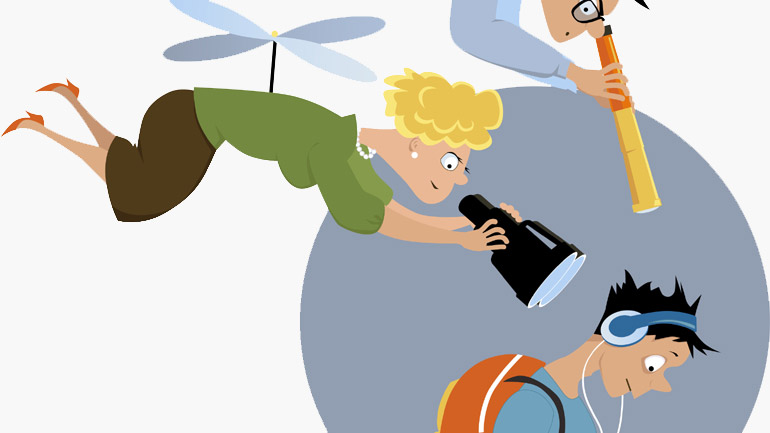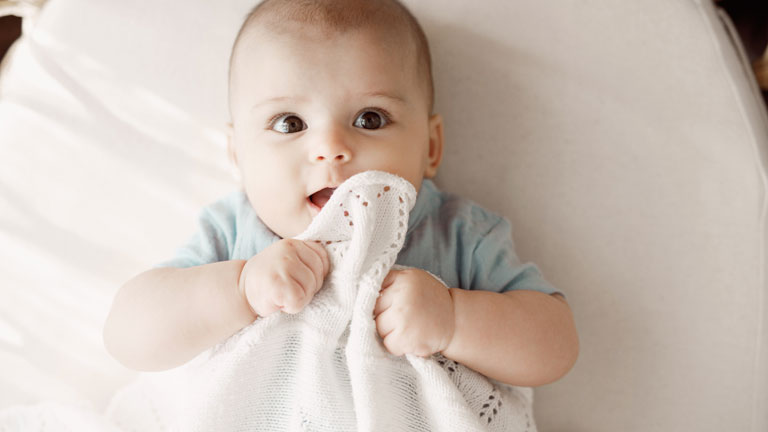
Do you follow your child around the jungle gym, protecting them from any potential falls? Are you writing your son or daughter’s essays at night because you know they could’ve done better if they weren’t so tired? If so, you may just be a “helicopter parent”. But wait, what exactly is a “helicopter parent”?
The term “helicopter parent” was first used by Dr. Haim Ginott’s in his 1969 book, Parents & Teenagers. Lately the term has made a comeback, becoming so popular in the past few decades that it even made it into the dictionary in 2011. Merriam-webster now defines “helicopter parent” as “a parent who is overly involved in the life of his or her child.”
Colloquially the term has become a common insult toward overbearing parents around the U.S. And although at first it may not sound too bad, when you hear the stories of other helicopter parents you’ll quickly discover just how destructive overbearing parenting can be for children.
Types of Parents
Parenting isn’t easy and too often these days parents get the blame for every little mistake their children make. Still, some types of parenting are clearly healthier than others. “Helicopter parenting” is just one example of unhealthy parenting, however. There are a number of ways parents can do real damage to their children.
Dr. Diana Baumrind has devised a method for categorizing parents into four distinct types of parenting that has become the modern standard.
They are as follows:
- Authoritarian
- Authoritative
- Permissive
- Neglectful
“Helicopter parenting” is really just the toxic mix of two types of parenting. Permissive and authoritarian. Helicopter parents have high standards of authoritarian parents without strict rules for their children. This leads to a consistent overbearing nature and constant worry.
Helicopter parents are known for doing their children’s schoolwork, insisting on helping them long after they’ve left the nest, and constantly worrying when they leave the house.
If this all sounds normal to you, it shouldn’t. And you may want to think long and hard about whether you may be a “helicopter parent”.
Stories of “Helicopter Parents” Nightmares
If you’re like me, then growing up you read To Kill A Mockingbird in school. Harper Lee’s words made a big impact on entire generations of Americans. In particular there’s a moment when Atticus Finch says, “there’s a lot of ugly things in this world, son. I wish I could keep ’em all away from you. That’s never possible.”
Unfortunately, it seems the past few generations missed that last part. Instead, we’ve tried to keep every ugly thing in this world away from our kids, and we’re failing.
Recently, Women’s Day published a list of 15 frankly scary stories of parents overstepping boundaries while trying to help their kids. I want to go over a couple of these stories of parental mishaps to give any potential “helicopter parents” out there an idea of what is ok, and what isn’t.
The first story is from a daughter whose mom decided to apply to colleges for her. I don’t mean she helped her daughter with her application, I mean this mom decided to do the entire application herself, personal statement, and all. If you find yourself even considering this, then yes, you are a helicopter parent.
Another story that any reasonable parent should find frightening is one where a mother wanted to put cameras in her child’s kindergarten classroom so she could monitor her baby throughout the day. When the school said they couldn’t do this the mom decided she would just come to visit four times a day instead.
Don’t be like this. Don’t be a helicopter parent. It’s not good for your kids, and it’s definitely not good for your own mental health, but don’t take my word for it, listen to the experts.
Why You Should Avoid “Helicopter Parenting”
If the disadvantages of having a constantly hovering parent aren’t obvious to you already, I wanted to go over a couple of studies done at major U.S universities to make it clear, helicopter parenting isn’t the way to go.
First, a new study from Florida State University found that college students who reported having helicopter parents were more likely to experience burnout from schoolwork, and have a harder time transitioning to the real world.
Then there’s psychology expert Hara Marano who wrote the book A nation of wimps: The high cost of invasive parenting back in 2008. In the book, Dr. Marano discusses parental over-involvement and how it can hinder a child’s development socially, emotionally, and neurologically.
No matter where you look, there’s a study, book, or doctor there to tell you of the dangers of helicopter parenting, and yet still it remains so common.
The fact is “helicopter parenting” is used as a coping mechanism by many parents to deal with the worry and stress that comes with having a child. It’s understandable really. However if helicopter parents could just realize they are doing more harm than good, maybe they could back off and allow their children to find themselves. Of course, that’s easier said than done these days.
As Lenore Skenazy, Found of the Free-Range Kids movement and President of the non-profit Let Grow says:
“If you live in a culture that says you can’t let your kids get off the bus without an adult there to take him home, or we’ll arrest you for letting your kids walk home from the park, how can you do anything other than spend more time with them than you otherwise care to?”
Finding the balance between not getting the cops called on you for neglect and “helicopter parenting” can be easier said than done, but if you want the best for your child that’s what you need to do. Find balance.
Parents need to discipline their children, but they also need to allow them the space to grow on their own. Finding that goldilocks zone of parenting is the goal. Hopefully, this article helps you on your way. Just remember to leave the “helicopter parenting” on the sideline, it’s not good for anyone, “helicopter parents” included.




